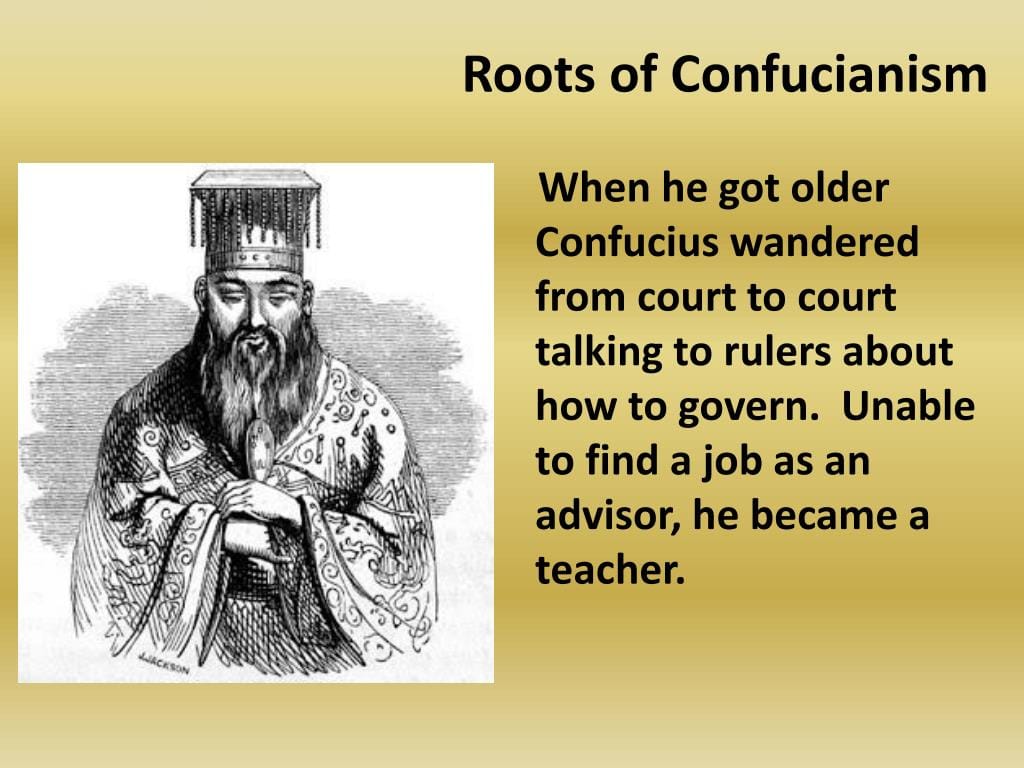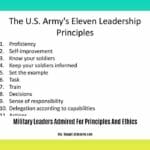Order through Harmony or Law: Confucianism vs. Legalism
Ancient China, a period marked by warring states and political instability, saw the rise of two distinct philosophies offering contrasting paths to social order: Confucianism and Legalism. Their differing views on human nature and the role of relationships continue to shape political and social thought today.
Confucianism: The Path of Harmony
Confucius, a revered philosopher, believed that humans are inherently good and capable of moral growth. He envisioned society as an interconnected web of relationships, each governed by reciprocal duties and responsibilities. These are encapsulated in the Five Relationships:
- Ruler and Subject: Benevolent governance fosters loyalty and obedience.
- Parent and Child: Filial piety and respect are paramount, with parents providing guidance and children demonstrating reverence.
- Husband and Wife: Mutual respect and support within the family unit, with traditionally defined roles contributing to harmony.
- Elder Sibling and Younger Sibling: Older siblings guide and protect, while younger siblings show deference and learn from their example.
- Friend and Friend: Mutual trust, loyalty, and support form the basis of strong, virtuous friendships.
Confucius taught that by fulfilling these roles with sincerity and virtue, individuals create a harmonious and prosperous society. This interconnectedness, much like a well-functioning ecosystem, fosters stability and well-being.
Legalism: The Rule of Law
Legalists, such as Han Feizi, held a more pessimistic view of human nature, believing that individuals are primarily driven by self-interest. They argued that strict laws, harsh punishments, and a powerful, centralized state are essential to maintain order. This “iron fist” approach aimed to suppress dissent and enforce compliance through fear and control.
Comparing Confucianism and Legalism: Two Paths to Order
| Feature | Confucianism | Legalism |
|---|---|---|
| Human Nature | Inherently good | Inherently selfish |
| Path to Order | Virtue, education, relationships | Strict laws, harsh punishments |
| Role of State | Minimal, focuses on moral guidance | Centralized, powerful, controlling |
| Value of Relationships | Essential for social harmony | Secondary to state power |
| Ultimate Goal | A harmonious and virtuous society | A stable and obedient society |
Unveiling the Dynamics: The Interplay of Legalism and Confucianism
Confucianism and Legalism, seemingly diametrically opposed, represent two sides of the same coin: the quest for a stable and prosperous society. While Confucianism emphasized the cultivation of virtue and the importance of relationships, Legalism prioritized the power of law and punishment. This fundamental difference shaped their contrasting approaches to governance and social order.
Two Approaches to Governance
Confucianism, like a seasoned gardener nurturing a delicate ecosystem, saw society as flourishing through the cultivation of strong relationships. Legalism, on the other hand, resembled a strict engineer, relying on rigid structures and control mechanisms to prevent societal collapse.
Contrasting Views
Confucian scholars probably viewed the Legalist emphasis on harsh punishments as a sign of societal failure, preferring the gentle persuasion of moral education. Conversely, Legalists likely scoffed at the Confucian belief in inherent goodness, seeing strict laws as the only effective way to curb selfish impulses.
A Historical Perspective: The Qin and Han Dynasties
The Warring States period (475-221 BCE) provided fertile ground for both philosophies to take root. The Qin Dynasty (221-206 BCE) embraced Legalism as its state ideology, achieving unification but also imposing harsh control. Subsequent dynasties, notably the Han (206 BCE – 220 CE), adopted Confucianism, integrating its principles into governance and social life. This shift suggests that while Legalism may have been effective for short-term control, Confucianism offered a more sustainable model for long-term stability.
Echoes of the Past: Modern Relevance
The interplay between Confucianism and Legalism continues to resonate today. Some experts suggest that the emphasis on a strong centralized government seen in Legalism echoes in some modern political systems. Simultaneously, Confucian values emphasizing family, respect for elders, and education remain deeply ingrained in many East Asian cultures.
Confucianism and Relationships: The Building Blocks of Society
Confucius believed that strong, harmonious relationships are essential for a well-functioning society. He envisioned society as an interconnected web, where individuals thrive through fulfilling their roles and responsibilities within a framework of mutual respect and kindness. This stands in stark contrast to Legalism, which prioritized strict adherence to laws over interpersonal connections.
The Five Relationships: A Blueprint for Harmony
These five key relationships, each with specific reciprocal duties and responsibilities, formed the foundation of Confucian social order:
- Ruler and Subject: A benevolent ruler inspires loyalty; a loyal subject supports just governance.
- Parent and Child: Filial piety, respect, and care for elders are paramount. Parents provide guidance and love, while children show reverence and obedience.
- Husband and Wife: Traditionally, husbands led with righteousness and provided for the family, while wives offered support and managed the household. Ideally, this dynamic is rooted in mutual respect and shared responsibility.
- Older Sibling and Younger Sibling: Older siblings serve as role models, offering guidance and protection; younger siblings demonstrate deference and respect.
- Friend and Friend: Built on equality, mutual trust, loyalty, and support underscore the importance of virtuous friendships.
These weren’t merely social conventions but were seen as moral imperatives, essential for cultivating virtues like benevolence (ren), righteousness (yi), and propriety (li).
Beyond the Five: The Three Bonds and Their Implications
Confucianism also incorporates the concept of the Three Bonds (三綱, sāngāng): Ruler-Subject, Father-Son, and Husband-Wife. While overlapping with the Five Relationships, the Three Bonds emphasize the hierarchical nature of these connections. Some scholars suggest this concept may have Legalist roots, highlighting the complex interplay between the two philosophies. While the hierarchical aspect might seem at odds with modern values, it’s important to consider its historical context and its intended purpose: maintaining social order in a time of frequent upheaval.
Filial Piety: The Cornerstone of Confucian Ethics
Filial piety (孝, xiào), the respect and obedience shown to elders, is considered the cornerstone of Confucian ethics. This deep respect for elders extends beyond the immediate family, shaping social interactions and reinforcing the importance of generational continuity.
Ritual and Propriety: The Glue of Social Interaction
Confucianism emphasizes Li (禮, lǐ), rituals and propriety, as essential for governing social interactions. Adherence to Li reinforces respect, maintains order, and strengthens relationships.
The Confucian Individual: Cultivating Inner Harmony
Confucianism emphasizes individual moral cultivation. By practicing virtues like ren (benevolence), yi (righteousness), and li (propriety), individuals not only contribute to social harmony but also achieve personal fulfillment. This inner harmony radiates outwards, influencing relationships and strengthening the social fabric.
The Enduring Legacy of Confucianism: Relationships in the Modern World
While Confucianism emerged in ancient China, its emphasis on relationships remains remarkably relevant today. The core principles of respect, responsibility, and reciprocal kindness continue to resonate across cultures and offer valuable insights for navigating the complexities of modern life.
Adapting to Modernity: Balancing Hierarchy and Equality
The hierarchical aspects of Confucianism, particularly within the Three Bonds, may seem outdated in a world that increasingly values equality and individual autonomy. However, the underlying emphasis on mutual respect and responsibility remains crucial for building strong relationships, whether in families, workplaces, or communities. Modern interpretations of Confucianism often emphasize the reciprocal nature of duties within these relationships, balancing tradition with contemporary values.
Confucianism in a Globalized World: Cross-Cultural Insights
The principles of Confucianism, particularly its emphasis on harmony and respect, can be applied to cross-cultural interactions, fostering understanding and promoting peaceful coexistence in an increasingly interconnected world.
Bridging the Gap: Confucianism and Modern Challenges
Confucianism’s focus on strong relationships can provide valuable guidance for navigating contemporary challenges such as changing family structures and workplace dynamics. Its emphasis on ethical behavior and social responsibility can contribute to building a more just and compassionate society. While the specific expressions of Confucianism may evolve, its core values related to human interaction remain timeless. Ongoing research continues to explore the nuances of Confucian thought and its applicability to modern life. It is likely that the wisdom of Confucius will continue to inspire generations to come, offering a path towards building stronger relationships and a more harmonious world.
- Unlocking Francis Alexander Shields’ Finance Empire: A Comprehensive Biography - July 12, 2025
- Unveiling Francis Alexander Shields: A Business Legacy - July 12, 2025
- Francis Alexander Shields’ Business Career: A Comprehensive Overview - July 12, 2025
















1 thought on “Good Relationships, Strong Society: Confucianism vs. Legalism in Ancient China”
Comments are closed.